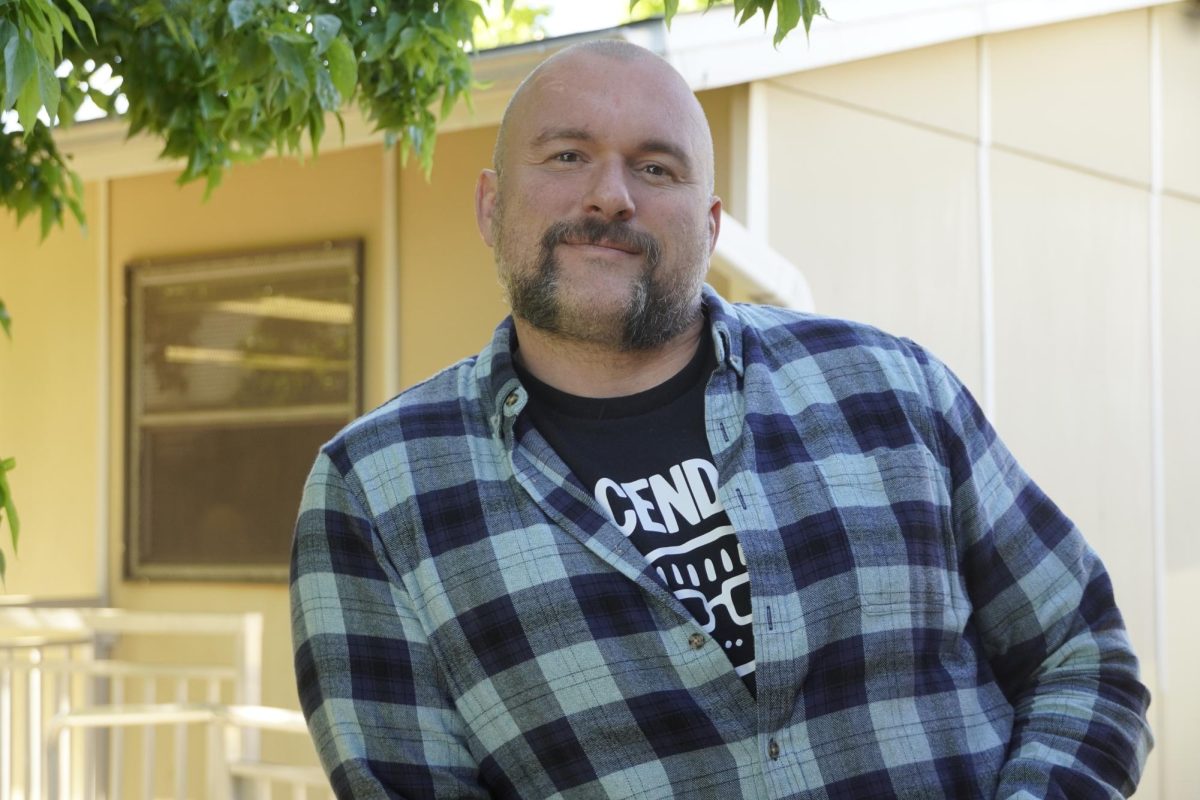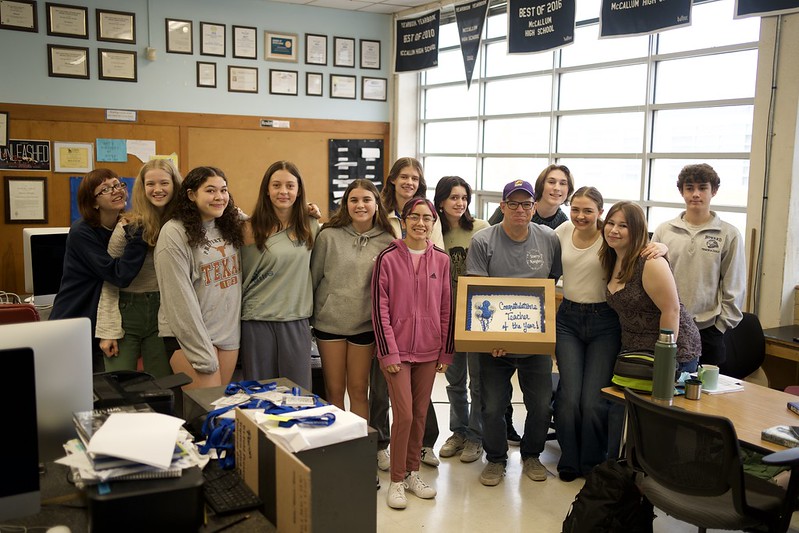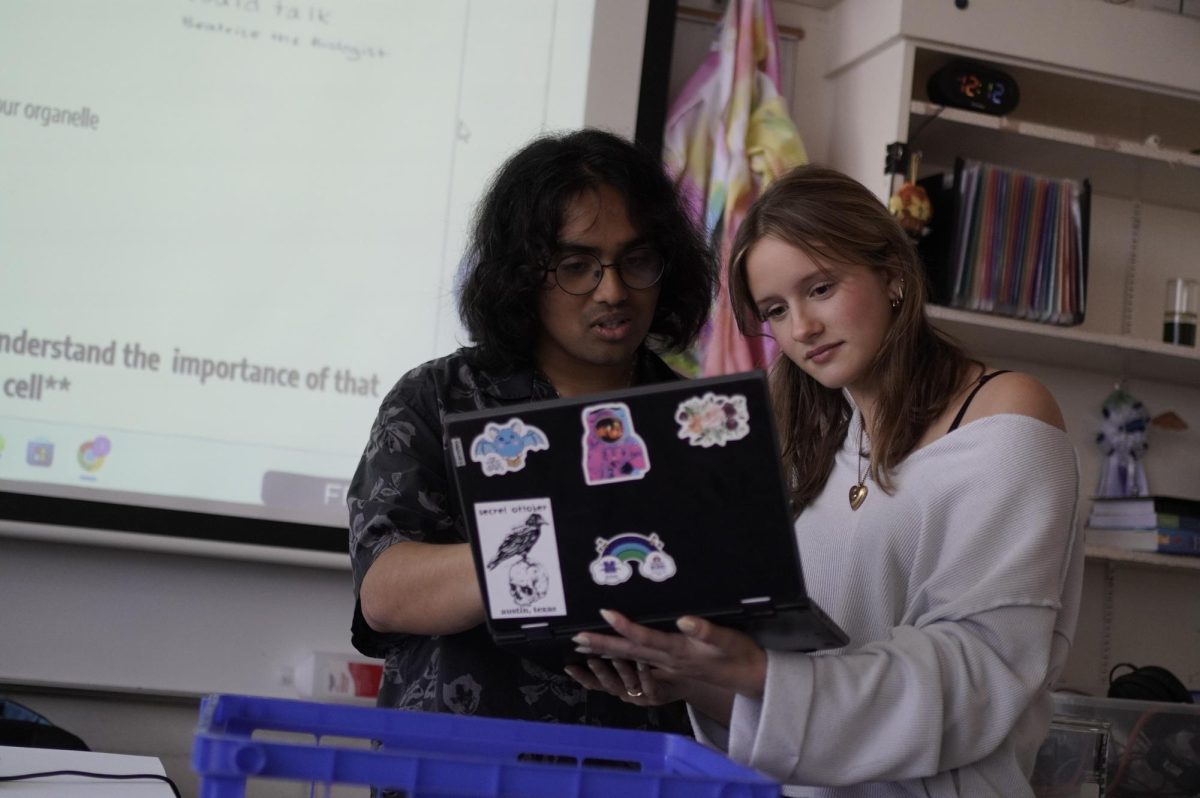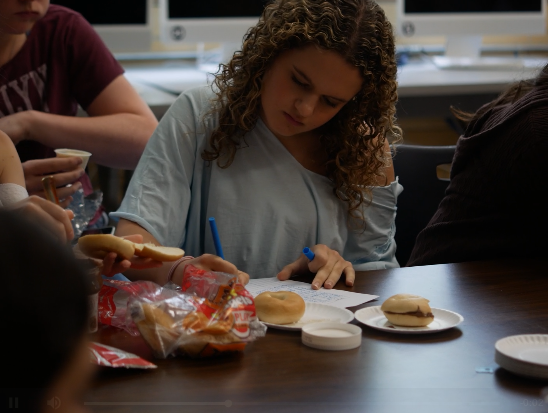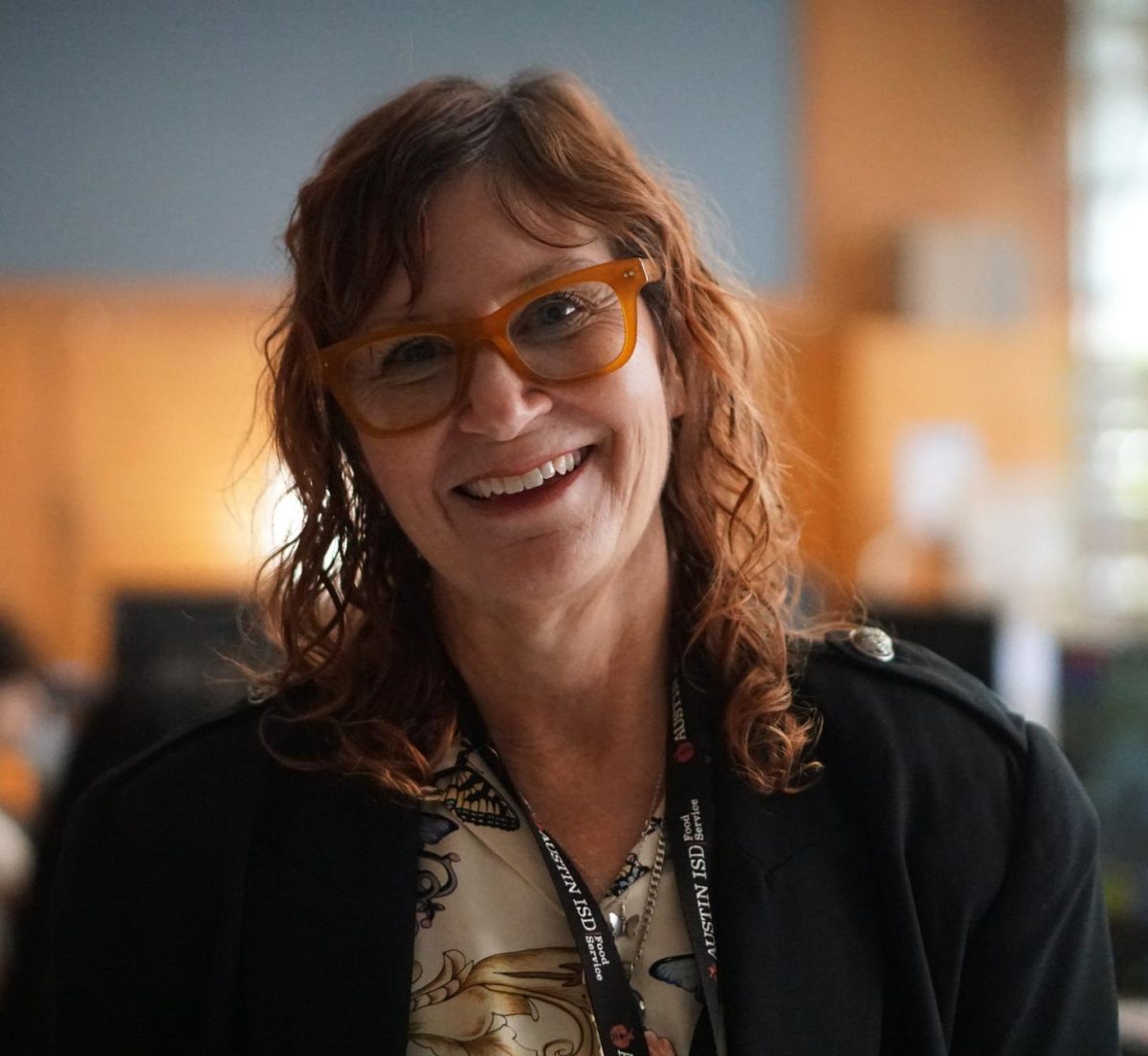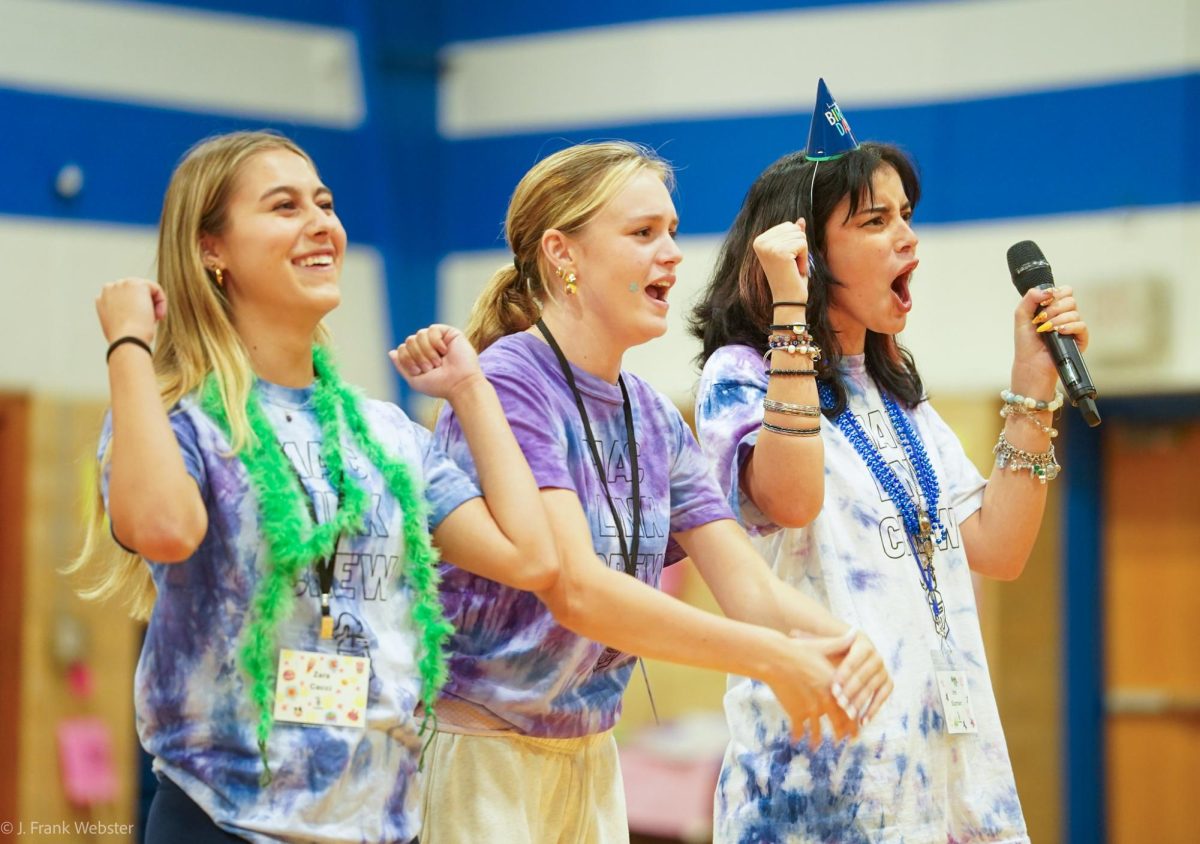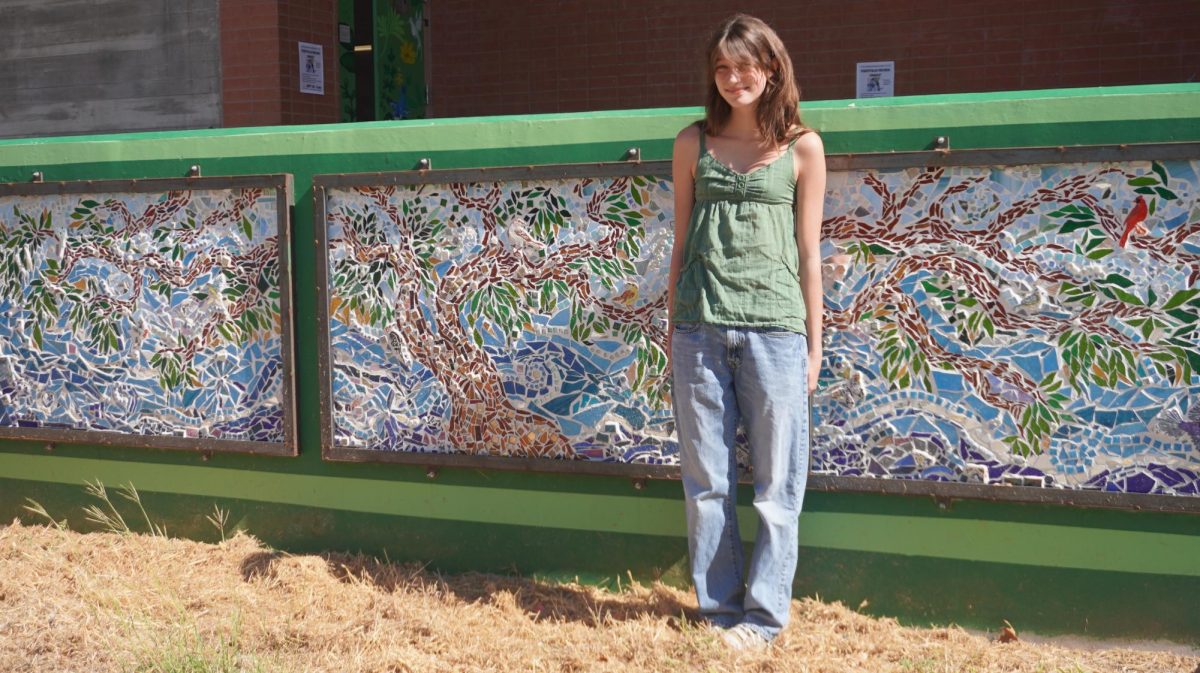The office of Allie Hersh, McCallum’s newest school counselor, is painted pale blue. The curtains are drawn and the room is illuminated by a soft pink light. Student artwork decorates the walls. There is a small couch on one side of the room for students to sit while they talk to her. Nearby is a box of tissues.
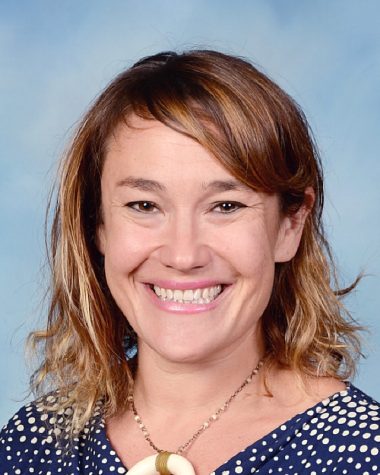
I watch as Ms. Hersh talks a freshman girl with bleached blonde hair through her schedule. How was she doing in art? How about Algebra II? What does she want to do for a PE credit? When she talks to the student, it never seems stiff or formal. She converses with her, talking about a concert at Stubb’s they both went to or the girl’s extracurricular of choice, roller derby. They talk, they laugh and by the end, the girl leaves satisfied with a new schedule.
That’s one of the keys to being a good counselor, Ms. Hersh says, relatability.
“In order to help someone the student has to be comfortable to share whatever’s going on.” Especially when it comes to another one of a counselor’s roles within a school, something less spoken of but just as important as schedule adjustments: helping students with mental health issues, relationships, family troubles and the like. This role is actually what drew Ms. Hersh to the profession and the facet of the job that she considers to be one of the most interesting. Before becoming a school counselor, she worked as a teacher in a psych hospital in Oakland and as an English teacher in San Francisco and abroad in Madrid, Spain.
“But I was always more interested in what was going on with the kids socially and emotionally,” she says. “And through my own reflection I realized I wanted to transition to being a school counselor.”
Helping and supporting students emotionally is a bigger part of Ms. Hersh’s job than many students expect. Ms. Hersh suspects that most kids do come see their counselor for schedule changes; it’s actually about an equal amount of scheduling and dealing with mental health crises.
“Even though only one person and one family are involved and the other 99.9 percent were interfacing on this other more superficial level, the things that do arise take time, follow-up, management,” she says. Ms. Hersh will often take in students in crisis during class periods to help them calm down. She also writes out referrals to therapy for some students and works closely with the social worker and on-campus therapist. Dealing with crisis takes empathy, dedication, teamwork, and the ability to switch tasks at the drop of a hat. Ms. Hersh says she never plans her day out because she could be called to an emergency at any moment.
“I would have interviews with seniors for their recommendation letter, and we would have their interviews set up for a couple weeks, but if an emergency comes up? Too bad, can’t do the interview,” she says, throwing up her hands.
Even though most students think all that our counselors do is organize schedules, they do so much more. They’re the backbone of the school. They do the behind the scenes work that keeps McCallum up and running smoothly.
“Scheduling is probably what the majority of what the students come see their counselor for, but that’s not the most compelling reason for why I do this work,” Ms. Hersh says. “The most interesting is helping kids get out of a cycle of anxiety or avoidance or family conflict and helping kids feel connected and excited about something. That’s why I do this work.”
This feature profile is the first in our special series, MACulty at Work. This exclusive online series profiles the work and the lives of McCallum faculty members beyond the classroom.


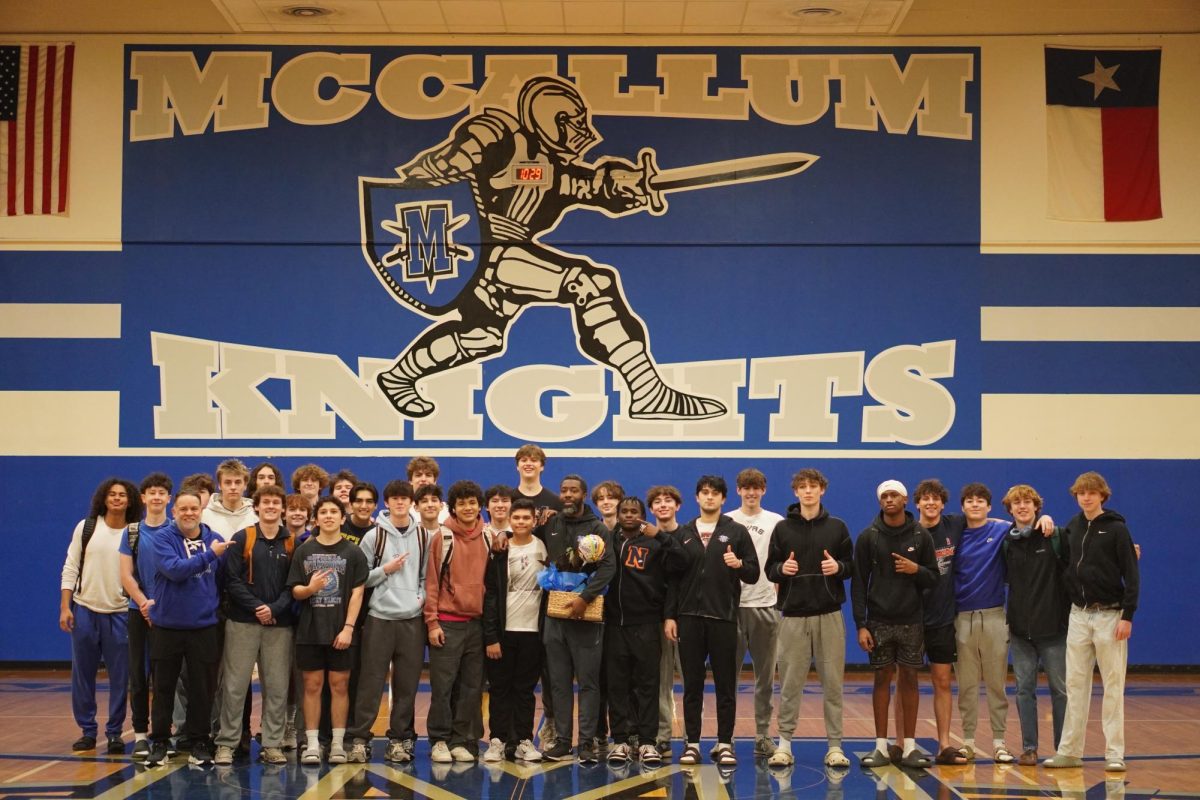
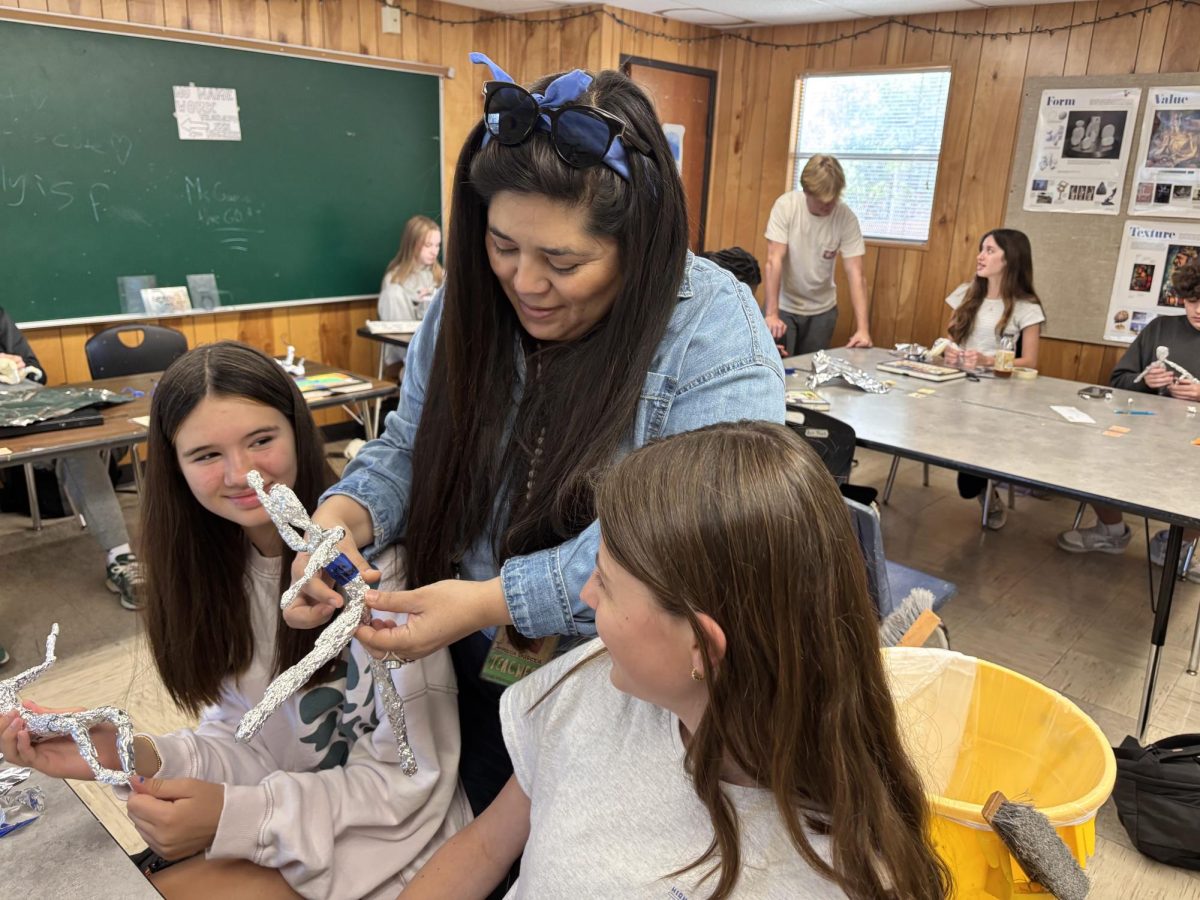

![This is Paul Pew's high school graduation photo. The 2023-2024 school year marked his 34th year of teaching. He began his career in Washington, then came to McCallum where he has taught for the past 17. At heart though, he’s really a musician. One that grew up in many different places, including Chicago and California, who took interest in teaching from a young age. His high school choir experience, along with some international singing in college, persuaded him that teaching was his path. He knew he wanted to be able to help create works of art in the fine arts department as well, so he joined McCallum. He’s worked on many of the musicals over the years, even before Joshua Denning, the former theatre director of the fine arts program arrived. Before him was a different director: Tatum.
“I was the music director for all the musicals,” Pew said. “[Mr. Tatum and I] worked very hard, and I just got to the point where I was satisfied with it.” Although he may not be as prominent of a member in the musical theatre community at McCallum anymore, he still plays piano. “I still do a lot of music down at the Music end of the building,” Pew said. Photo courtesy of Paul Pew.](https://macshieldonline.com/wp-content/uploads/2024/07/Paul-Pew-1974-888x1200.jpg)
